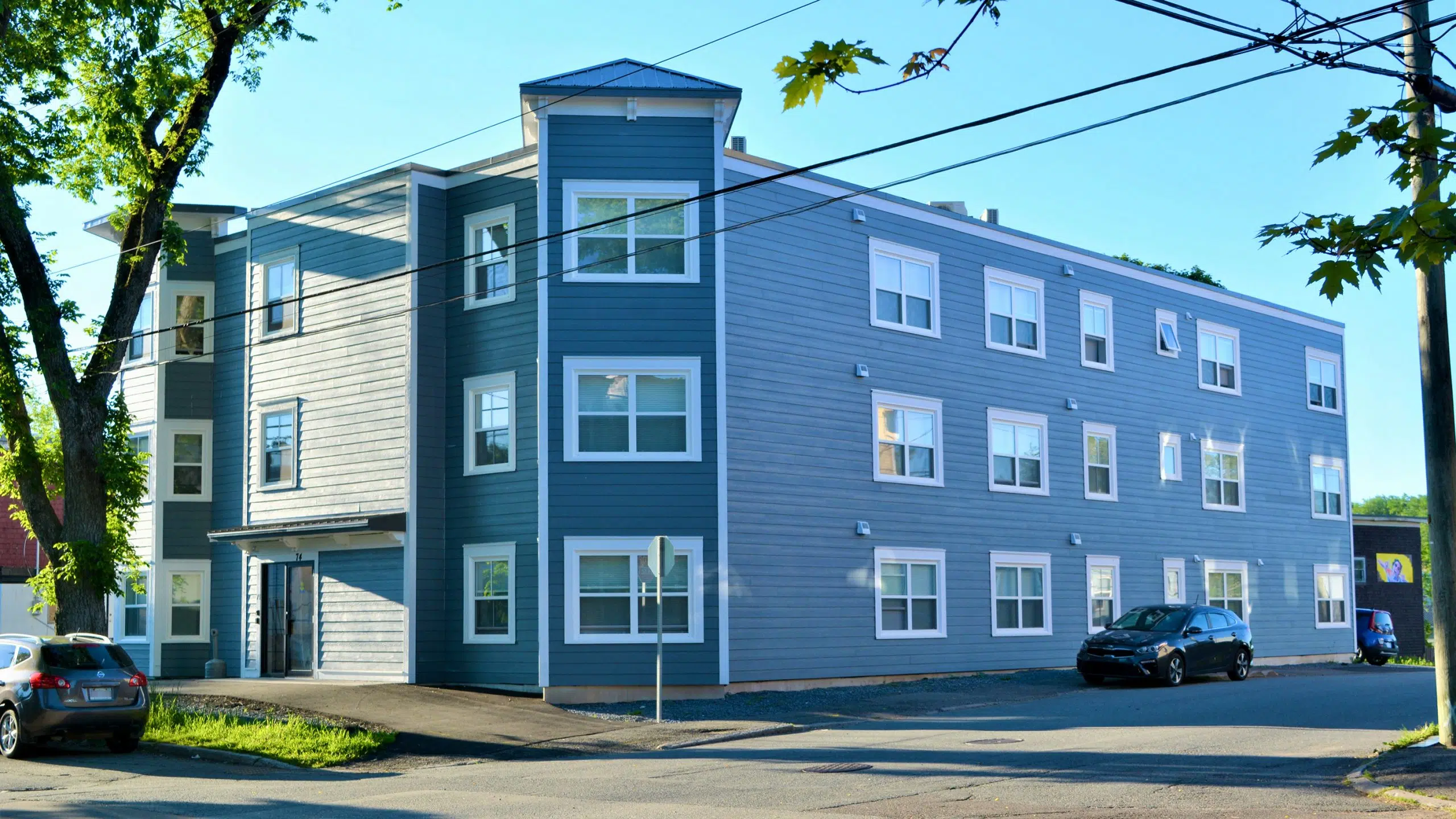A new affordable housing project in Saint John’s north end has received more than $1.8 million in federal and provincial funding.
The new 14-unit building on Victoria Street is the most recent addition to the Unified Saint John Housing Co-operative.
Details of the funding were unveiled during a virtual news conference held on Friday afternoon.
“We are very pleased to be able to work in partnership with the Saint John Land Bank to see our 14-unit mixed-income housing project as the first development within the Victoria Commons demonstration area,” said Lynn Wood, president of the co-operative’s board of directors.
Construction on the three-storey building began in the spring of 2019 and was completed last October.
Ottawa contributed $1.33 million through the National Housing Strategy’s National Housing Co-investment Fund.
New Brunswick invested $480,000 and rent supplements for 12 of the units to ensure those tenants do not pay more than 30 per cent of their total household income in rent.
Ahmed Hussen, minister of families, children and social development and minister responsible for Canada Mortgage and Housing Corporation, said the initial average rents for those 12 units would be around $256.
“Each and every Canadian deserves a safe and affordable place to call home, and as we’ve sheltered in place to prevent the spread of COVID-19, our homes have become essentially places of refuge and sanctuary in these challenging times,” said Hussen.
Hussen said the federal funding ensures the rent will continue to be affordable for at least 20 years.
Saint John-Rothesay MP Wayne Long, who also took part in Friday’s announcement, said one of the concerns he often hears from constituents is housing affordability.
“They tell me that having a home they can afford makes all the difference in their ability to raise their families, plan for the future and live with dignity. Today’s announcement brings us one step closer to addressing that concern,” said Long.
A recent 90-day rental review launched by Premier Blaine Higgs looked at ways to address gaps in access to affordable and adequate housing amid growing concerns over rapidly rising rental rates in the province.
Despite calls from tenants and advocacy groups, the review stopped short of recommending rent control.
Instead, the report recommended limiting rent increases to once a year, providing “better protections against unreasonable rent increases,” and reviewing the notification period for landlords.
“Is it enough? No, it’s not enough,” Long said when asked if the federal funding would be enough to help people struggling with rising rent prices.
“We certainly have a serious issue with rising rent prices here in southern New Brunswick, across the province and really in different spots across Canada, but we need to start somewhere.”
Hampton MLA Gary Crossman, who spoke on behalf of Social Development Minister Bruce Fitch, said his constituency office also receives a lot of calls about affordable housing.
“This will provide assistance to the households in need, for sure, and get more affordable housing that is clean, neat, hopefully energy efficient as well, and save them on their rent,” said Crossman.
Ahmed also noted the recent agreement between Ottawa and New Brunswick to provide $98-million in direct rental supplements to people who need it the most.
“We’re doing everything that we can to make sure that we add to the rental units, we add to the affordability, we continue investments in the Canada Housing Benefit,” he said.








